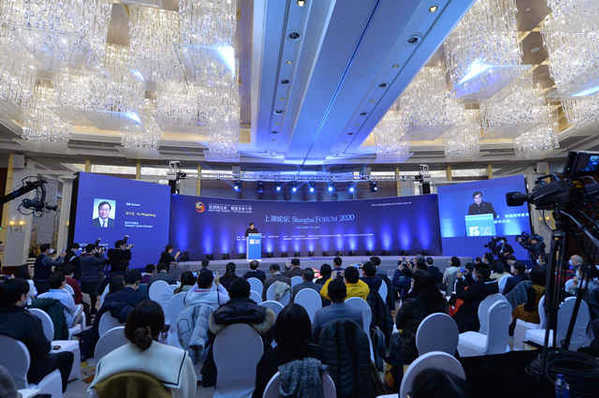Author:XING YI Release date:2020-12-19 23:33:48Source:CHINA DAILY

The 15th Shanghai Forum was held in Shanghai on Friday, with experts from government, academia and corporations around the world attending in person and through teleconferencing.
Themed Asia's New Journey: The Decade Ahead, the forum was focused on topics including environmental problems, geopolitical tensions and economic collaboration.
Experts in attendance said that Asian countries can provide a new model for the world to tackle challenges and create opportunities in the coming decade.
Zhang Yunling, a member of the Chinese Academy of Social Sciences, said the recently signed Regional Comprehensive Economic Partnership (RCEP) is a good example of the Asian model of regional cooperation.
It is different from previous free trade agreements in that it give special emphasis to collaboration rather than stressing solely on market access and zero tariffs, he said.
Zhang noted that the RCEP agreement includes a chapter on economic and technical cooperation, which aims to narrow the development gaps and maximize mutual benefits among the parties, something that is not seen in previous FTA agreements.
Wu Xinbo, dean of the Institute of International Studies at Fudan University, said the signing of the RCEP will likely speed up the negotiations for the China-Japan-Republic of Korea free trade agreement.
Investments between China, Japan and South Korea have been growing over the past years, and if the three countries can reach a free trade agreement in the coming one or two years, it will elevate the quality of cooperation. For the next step, they will probably start working on an agreement on the protection of investment, he said.
Wu added that Asia will become not only the key driver of the world's economic growth in the next decade, but also a model of regional cooperation in resolving broader issues on security and environment problems. He cited the Shanghai Cooperation Organization, which helps strengthen trust and security, and the sub-regional Lancang-Mekong River cooperation mechanism, which promotes various mutual beneficial projects, as examples.
Possible directions of the United States's Asia policy under the administration of incoming president Joe Biden were also discussed at the forum.
Susan Thornton, former US acting assistant secretary of state, said the US is undergoing profound domestic changes, and its public opinions have been split between nationalism and isolationism versus internationalist and open society.
For the moment, it seems clear that Joe Biden is determined to bring the US back to the internationalist and openness path — to reconnect US to multilateralism, she said.
I don't believe that America will retreat to her shore and hide from the challenges of the world. The Asia-Pacific region is of crucial interest to the United States, and it will actively engage and uphold peace and security in Asia.
With regard to environmental issues, Chey Tae-won, chairman and CEO of SK Holdings, said in his video speech that humanity's uncontrolled greed and selfishness has led to many environment problems, threatening the very existence of human species.
Chey said a corporate strategy integrating environmental, social and corporate governance factors, a strict regulatory system and empathy will be key to solving the environmental crisis looming ahead.
The forum, which will hold another two roundtables over the weekend, was co-hosted by Fudan University, the Korea Foundation for Advanced Studies and the Chey Institute for Advanced Studies.